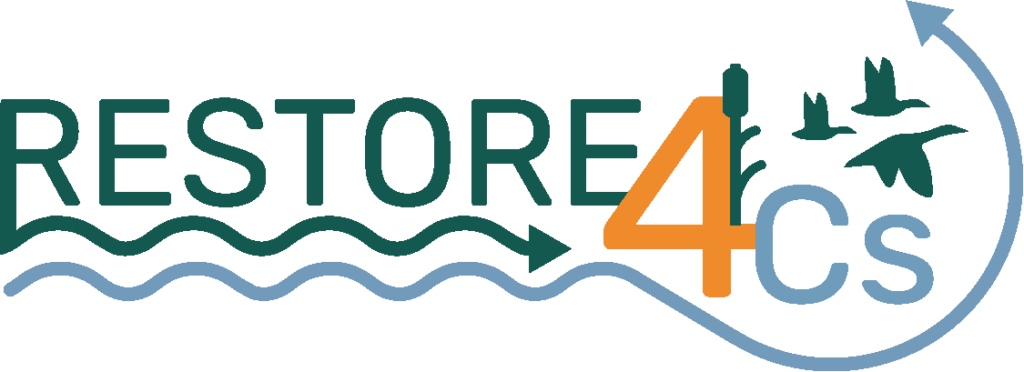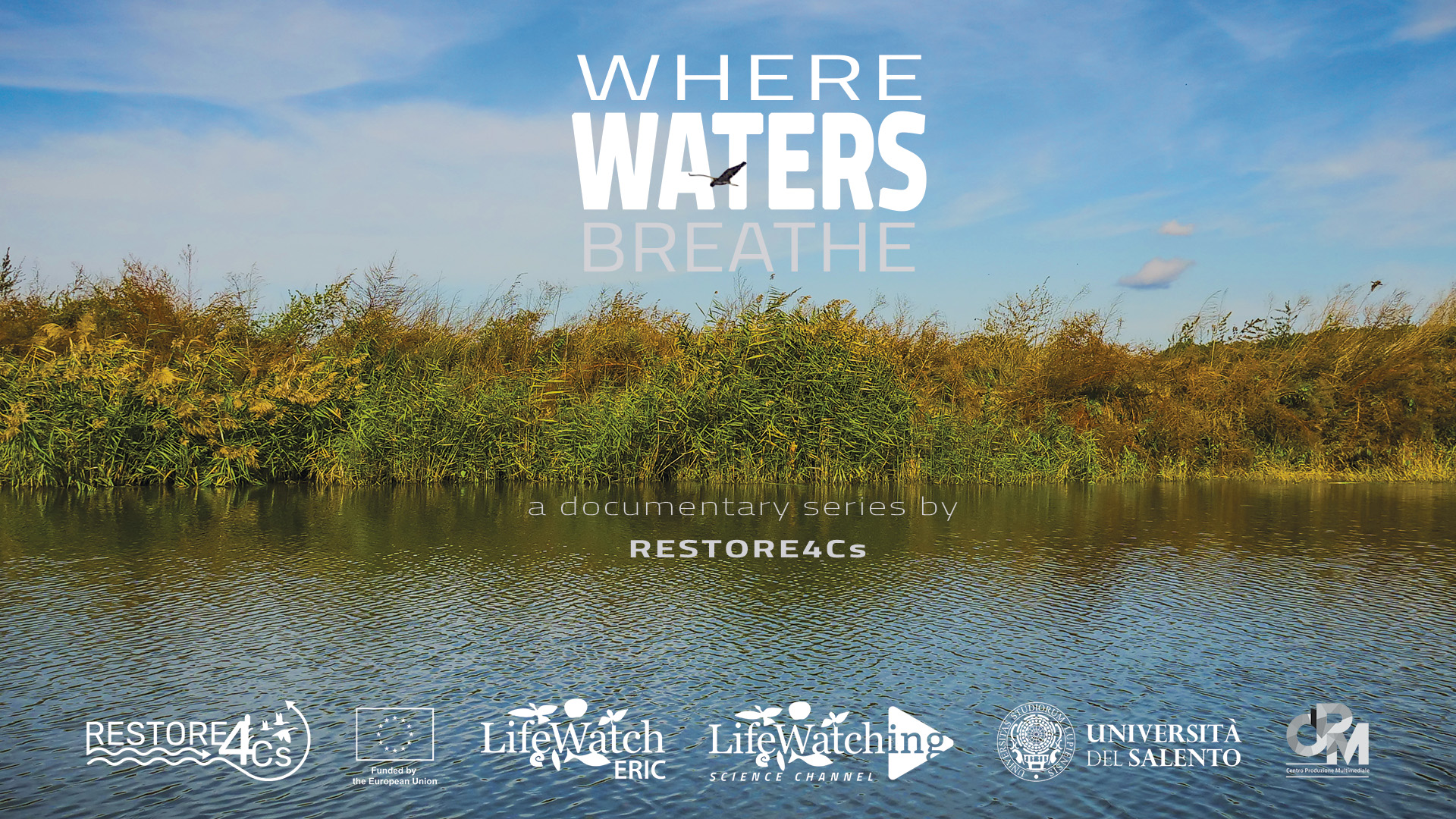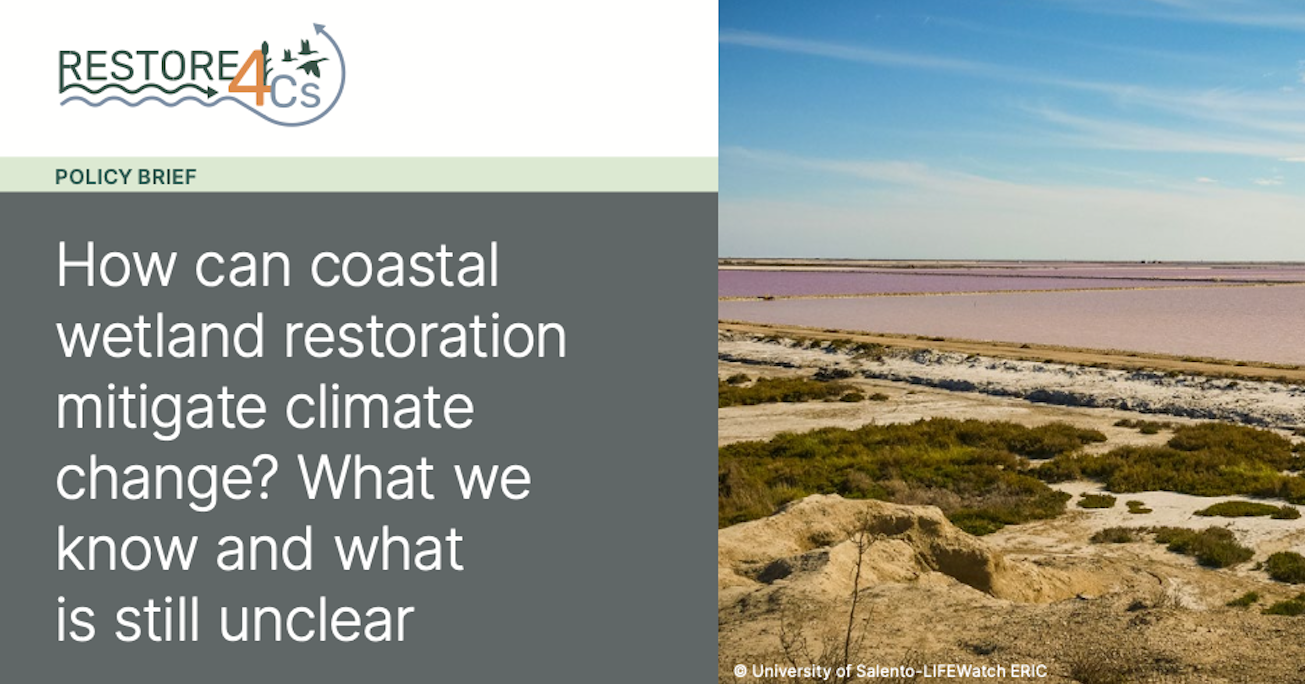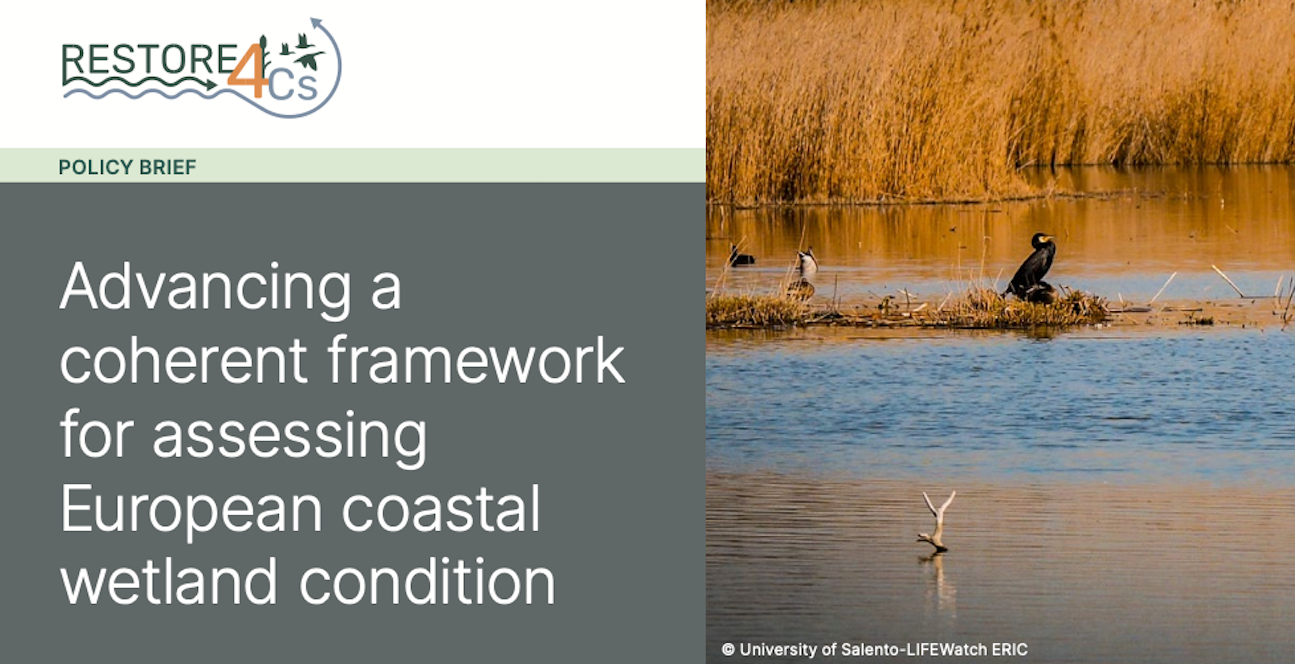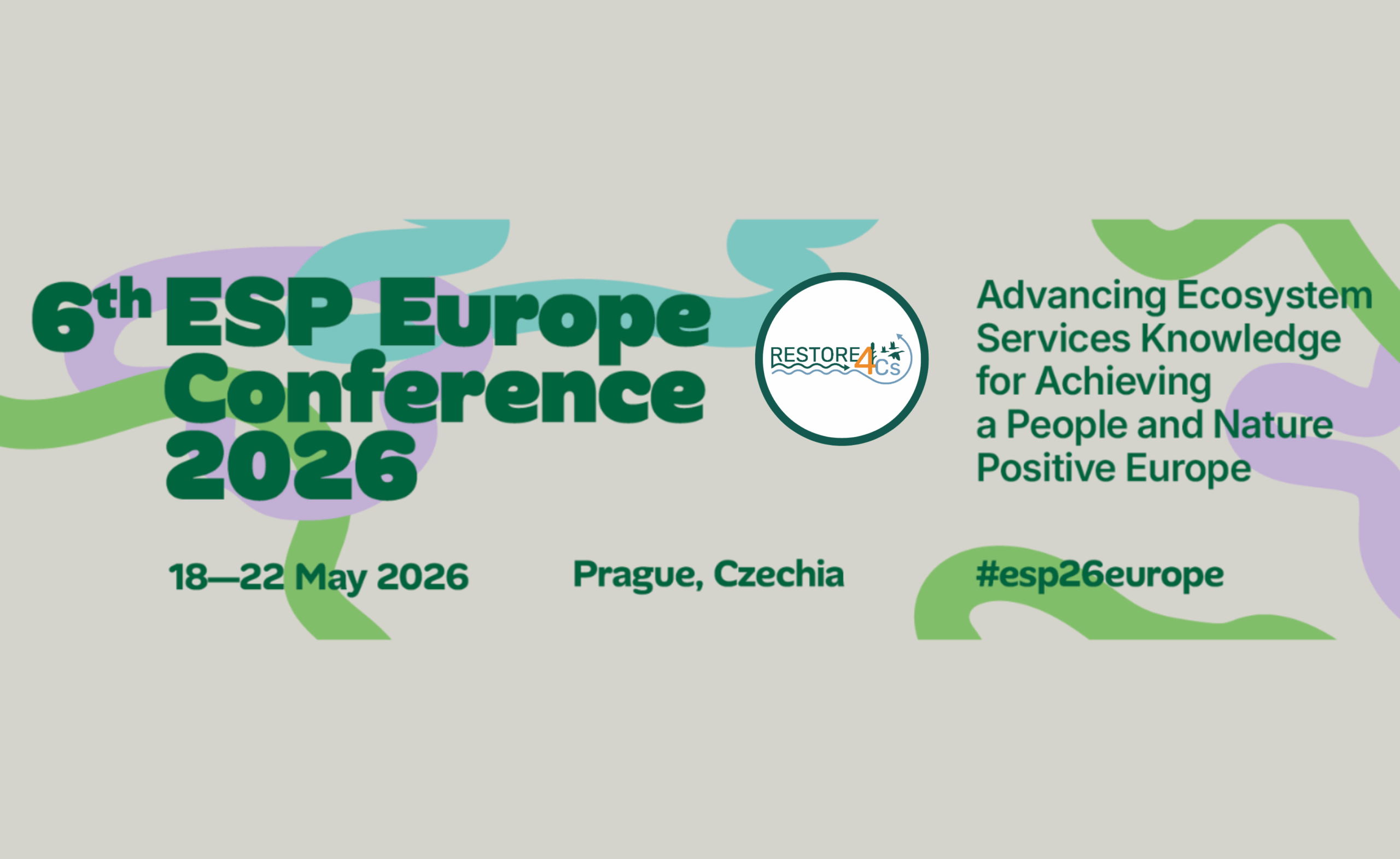In a powerful demonstration of cross-project collaboration and scientific excellence, four Horizon Europe-funded wetland restoration projects, ALFAwetlands, RESTORE4Cs, REWET and WET HORIZONS, took centre stage at the 12th INTECOL Wetlands Conference, held from 29 June to 4 July in Tartu, Estonia. Hosted alongside the 20th Annual Meeting of the Society of Wetland Scientists Europe, the event served as a pivotal forum for advancing global wetland restoration efforts amid accelerating climate challenges.
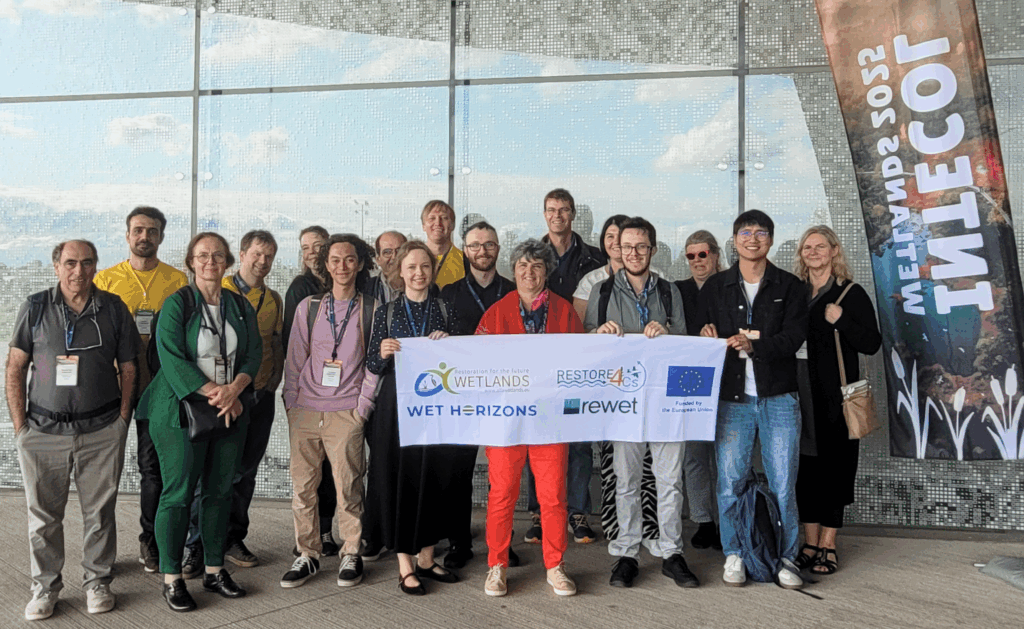
Held in one of Europe’s richest wetland landscapes, the INTECOL 2025 conference drew together researchers, policymakers, and practitioners from across the globe. The four Sister Projects delivered a united message: restoring Europe’s wetlands is not only achievable, it is essential.
“The joint wetland Sister Projects session at INTECOL showcased diverse approaches to wetland restoration and climate mitigation,” said ALFAwetlands’ coordinator, Liisa Ukonmaanaho (Luke, Finland). “It strengthened our collaboration and gave greater visibility to all projects, while offering a platform to share broader findings from related initiatives.”
Science in Action: Symposium 13 and Beyond
A standout moment was Symposium 13: “Restoration of Wetlands – Pathways, Trade-offs and Co-benefits”, which featured coordinated presentations from all four Sister Projects. In this joint session, participants explored how wetland restoration supports carbon sequestration, biodiversity, water quality, and broader climate resilience.
RESTORE4Cs’ António J.A. Nogueira (University of Aveiro, Portugal), unveiled the AquaLinks Tool, a decision-support platform that reveals causal links between restoration actions and ecosystem outcomes. “Presenting our work on coastal wetlands alongside our Sister Projects reinforced the importance of combining site-specific data with harmonised approaches. Cross-project collaboration enhances our ability to deliver robust, science-based tools for decision-making,” he noted.
“In the research we presented by Ilona Tamm from the University of Tartu at INTECOL 2025, we examined how the speed of vegetation recovery in restored peatlands influences their potential to mitigate climate change. Peatlands are fragile and complex ecosystems, and stronger efforts are needed to restore their capacity to act as carbon sinks rather than carbon sources. Collaborative opportunities like this joint session at INTECOL 2025 allow international researchers to exchange knowledge and ideas for more effective peatland restoration,” says REWET‘s Mara Mennella (Kneia, Spain).
WET HORIZONS’ Shihao Cui (Aarhus University, Denmark) presented project updates and achievements, including the framework for data-driven restoration efforts, a comprehensive European wetland and peatland maps, and decision-support tools to assist policymakers. On the importance of collaboration, he noted: “Since wetland restoration touches so many areas. You need input from soil scientists, climate modelers, land managers, policy experts, and local communities. Having that diversity helps make sure your solutions actually work in practice and not just in theory.”
Brian Sorrell (Aarhus University, Denmark), another researcher from WET HORIZONS, contributed to Symposium 7, where he presented findings on greenhouse gas exchange in Danish salt marshes. His talk addressed the critical influence of water table levels and grazing on methane emissions, insights that are crucial for shaping coastal wetland policy.
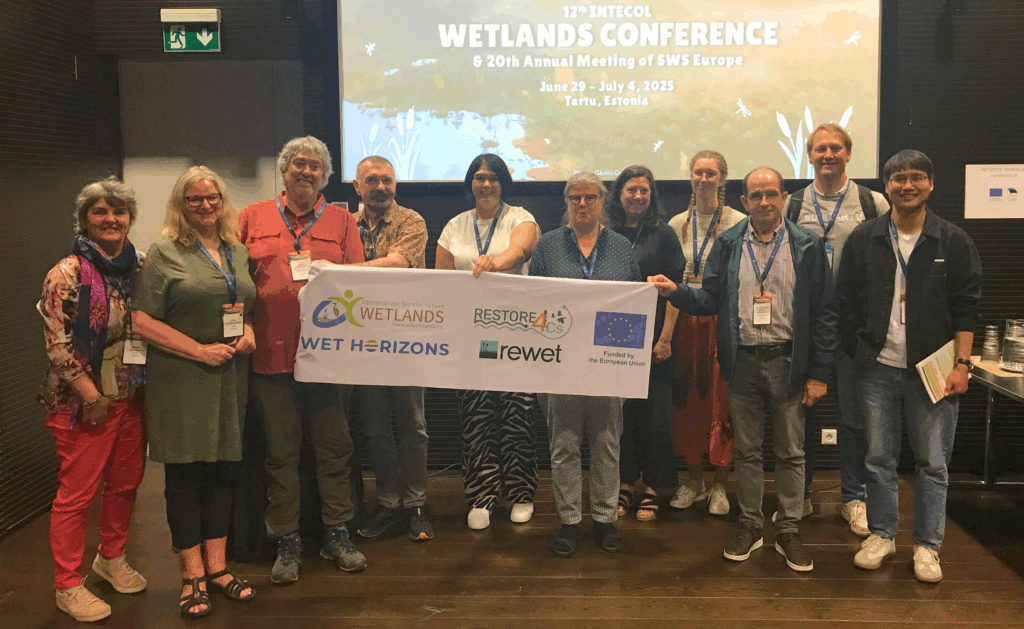
Other presentations throughout the conference, including those by ALFAwetlands, RESTORE4Cs, and REWET experts, enriched sessions on biogeochemistry, peatlands, and valuation of wetlands restoration. The projects’ synergy was further on display at a shared exhibition booth, where attendees explored pilot case studies, restoration tools, and policy applications.
“Restoring wetlands involves many aspects, hydrology, biodiversity, land use, and no single project can cover it all,” said Shihao Cui (Aarhus University, Denmark), of WET HORIZONS project. “Our joint session highlighted how combining expertise strengthens project outcomes and helps decision-makers take informed action.”
Study Visits and Communication
Estonia, home to raised bogs, peatlands, swamp forests, and coastal marshes, provided a fitting backdrop for this gathering. With more than half its land covered by forests and significant wetland ecosystems, the host country underscored the urgency and opportunity of wetland protection in Europe.
Considering that, INTECOL also included study visits to various wetlands sites. One of them took place the Männikjärve raised bog with well established hollow-ridge-pool systems including more than 120 pools and Lake Männikjärve and peatland restoration sites in Laiuse and Endla. Laiuse is also one of ALFAwetlands Living Lab sites.
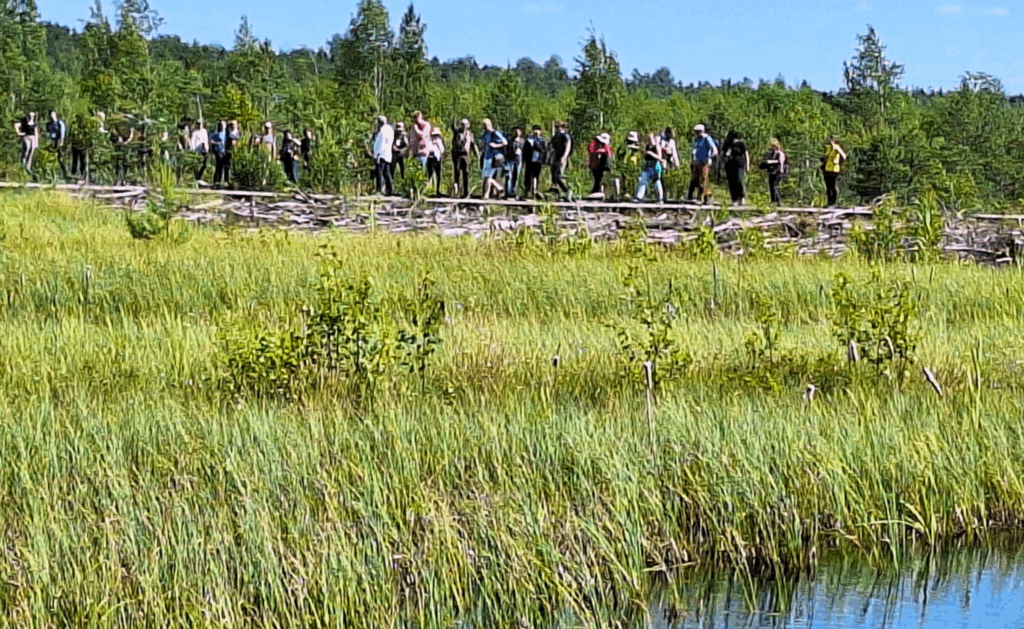
“I was impressed by the beauty of the pristine Männikjärve raised bog and the great results of restoration on the heavily degraded peatland sites, which we have visited, “ emphasises Kris Decleer (Research Institute for Nature and Forest and Science, Belgium), ALFAwetlands project. “I think this is a very suitable area to show policy-makers the importance of properly restoring former peat extraction sites for the biodiversity and climate challenges we face. A science-based approach is key.”
New Policy Briefs Released: RESTORE4Cs and REWET Lead the Way
In line with the EU’s Nature Restoration Regulation (NRR), RESTORE4Cs launched its second Policy Brief, “Unlocking Potential of Coastal Wetlands in Europe: Integration into National Restoration Plans.” The brief calls for stronger alignment between restoration plans and climate policy, urging EU Member States to scale up coastal wetland action.
“Our latest brief highlights how National Restoration Plans can become a strategic lever for coastal wetland restoration,” said RESTORE4Cs’ Eleftheria Kampa (Ecologic Institute, Germany). “This includes better carbon monitoring, long-term restoration planning, and stronger integration with national climate policies.”
The brief’s release was timely, as the EU moves forward with ambitious NRR goals, including restoring 30% of drained peatlands by 2030. RESTORE4Cs urges policymakers not to let “knowledge gaps” delay action, stressing that restoration and research must advance together.
REWET also released new policy insights on the urgency of rewetting peatlands, showing how restoration can proceed successfully even amid scientific uncertainties, with case studies from across Europe offering compelling proof.
“Wetland restoration isn’t a luxury, it’s a necessity. We know enough to begin,” emphasised RESTORE4Cs’ Madeira Scauri (LifeWatch ERIC, Italy). “Policy frameworks must support adaptive, science-informed restoration that evolves as new knowledge emerges.”
A Growing Ecosystem of Collaboration
Across technical tours, plenary talks, and informal networking moments, INTECOL 2025 reflected the deepening collaboration among the Sister Projects. From earlier joint appearances at SERE 2024 to awareness campaigns and data-sharing platforms, the projects continue building a united front to support wetland recovery at scale.
“Sharing a session and a booth gave a clearer sense of how we can support each other moving forward,” said ALFAwetlands’ Iryna Shchoka, (European Wilderness Society, Austria). “And for young researchers, it’s been especially inspiring to engage with this growing, experienced community.”
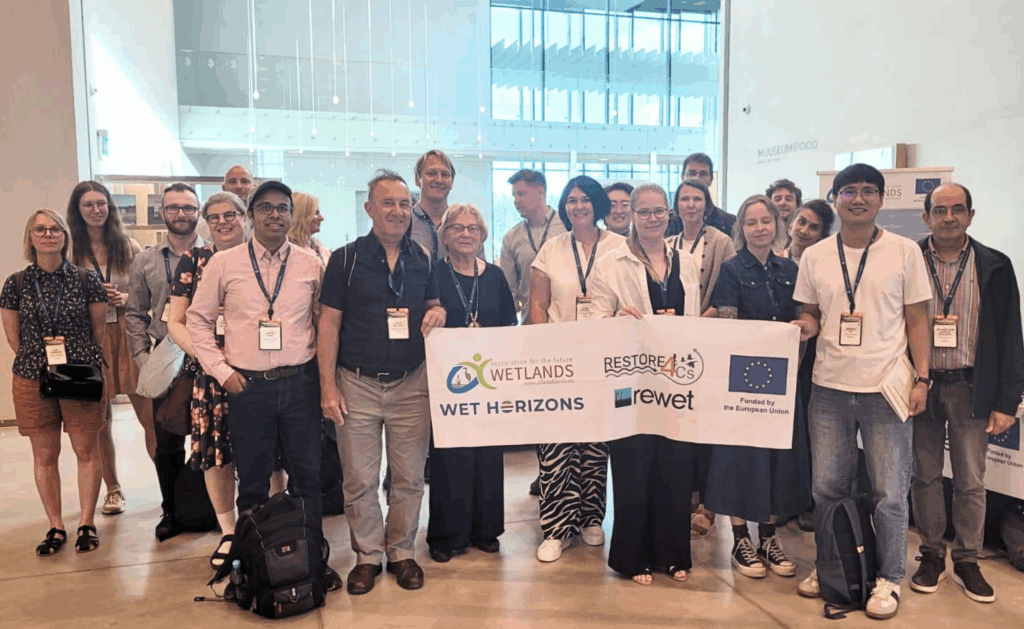
But collaboration was also possible beyond wetland researchers. “I had a few good conversations with researchers from different backgrounds, such as climate modelers, hydrologists, and people working on social aspects of land use”, says Shihao Cui from WET HORIZONS project. “Even though we’re all looking at wetlands, we approach them in very different ways. These conversations have helped me better understand how wetland research fits into broader environmental and policy discussions.”
Learn More and Get Involved
To explore the Sister Projects’ work, access policy briefs, and join the growing wetland restoration community, visit the joint LinkedIn group: 🔗 Wetlands Restoration Europe
Read the RESTORE4Cs, REWET and ALFAwetlands Policy Briefs:
🔗 RESTORE4CS: https://www.restore4cs.eu/restore4cs-2nd-policy-brief/
🔗 REWET: https://www.rewet-he.eu/news/wetland-restoration-acting-now-even-amid-knowledge-gaps
🔗 ALFAwetlands: https://alfawetlands.eu/policy-briefs/
Learn more about ALFAwetlands and WET HORIZONS’ European Wetlands Map:
🔗 WET HORIZONS: https://www.wethorizons.eu/launch-of-the-most-comprehensive-and-up-to-date-european-wetland-map/
🔗 ALFAwetlands: https://alfawetlands.eu/european-wetland-map-training/
